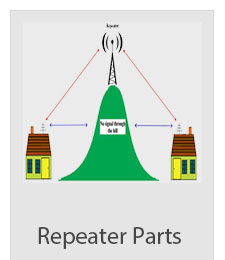Motivational Speakers Work
For anyone old enough to remember comedian Chris Farley's glory days, the phrase "motivational speaker" can only conjure up memories of one man: Matt Foley. Dressed in a checkered jacket, green tie and khaki pants belted in the least effective way possible, Foley was Farley's epic "Saturday Night Live" alter ego who aimed to inspire others with some, well, unconventional techniques (and topped Rolling Stone's best of SNL list).
"My name is Matt Foley, and I am a motivational speaker," he tells two teenagers played by a barely-stifling-a-giggle David Spade and Christina Applegate. "Now, let's get started by me giving you a little bit of a scenario of what my life is all about. First off, I am 35 years old, I am divorced and I live in a van down by the river!" Foley goes on to tell his rapt audience that they'll "amount to jack squat!" before picking up Spade and threatening to "wrassle" him into friendship. This is before he falls on top of the coffee table and crushes it.
While memorable, Farley's fictional character (shockingly) isn't quite the epitome of the ideal motivational speaker. While it's difficult to pin down a strict definition of the role, motivational or inspirational speakers are generally people who speak to crowds with the purpose of motivating or incentivizing them to achieve certain life goals [source: StateUniversity.com]. While some motivational speakers are celebrities or religious figures, others are ordinary people who have lived through extraordinary circumstances and/or overcome challenges.
Matt Long, an elite athlete from New York City, for instance, began his career as a motivational speaker after enduring a life-changing event: A 20-ton (18-metric ton) bus struck him while he was cycling to work, which led to him spending five months in the hospital and enduring more than 40 operations. After an intense three-year recovery, he managed to run the 2008 New York City Marathon.
"After a near fatal accident, I was asked to tell my story to a group of college students and families," he says. "After doing so, I realized the power of the connection I was able to make with this crowd and wanted it to continue. My goal is always to connect with at least one member of the audience. If I can deliver my message and convince just one that the hard work is worth it, I've done my job."
While there are no specific educational requirements to become a motivational speaker, possessing exceptional public speaking skills and a charismatic personality can certainly help raise a person's profile in the field. As Stacy Tetschner, the CEO of the National Speakers Association (NSA) told Inc. Magazine, there are people "who just have a story within them, and they go out there and start testing it... they go to a Kiwanis Club, and someone in the audience may come up and say, 'How much would you charge to come deliver that speech to this association or this group?' That's how it starts to catch fire."
"It certainly pays to own a pleasing, vivacious personality, however I believe any and all can learn to become professional public speakers," says Matthew LoCicero, a Thailand-based motivational speaker who focuses on issues like financial independence and business success. "I have personally witnessed shy, demure individuals develop to become dynamic speakers."
|

















